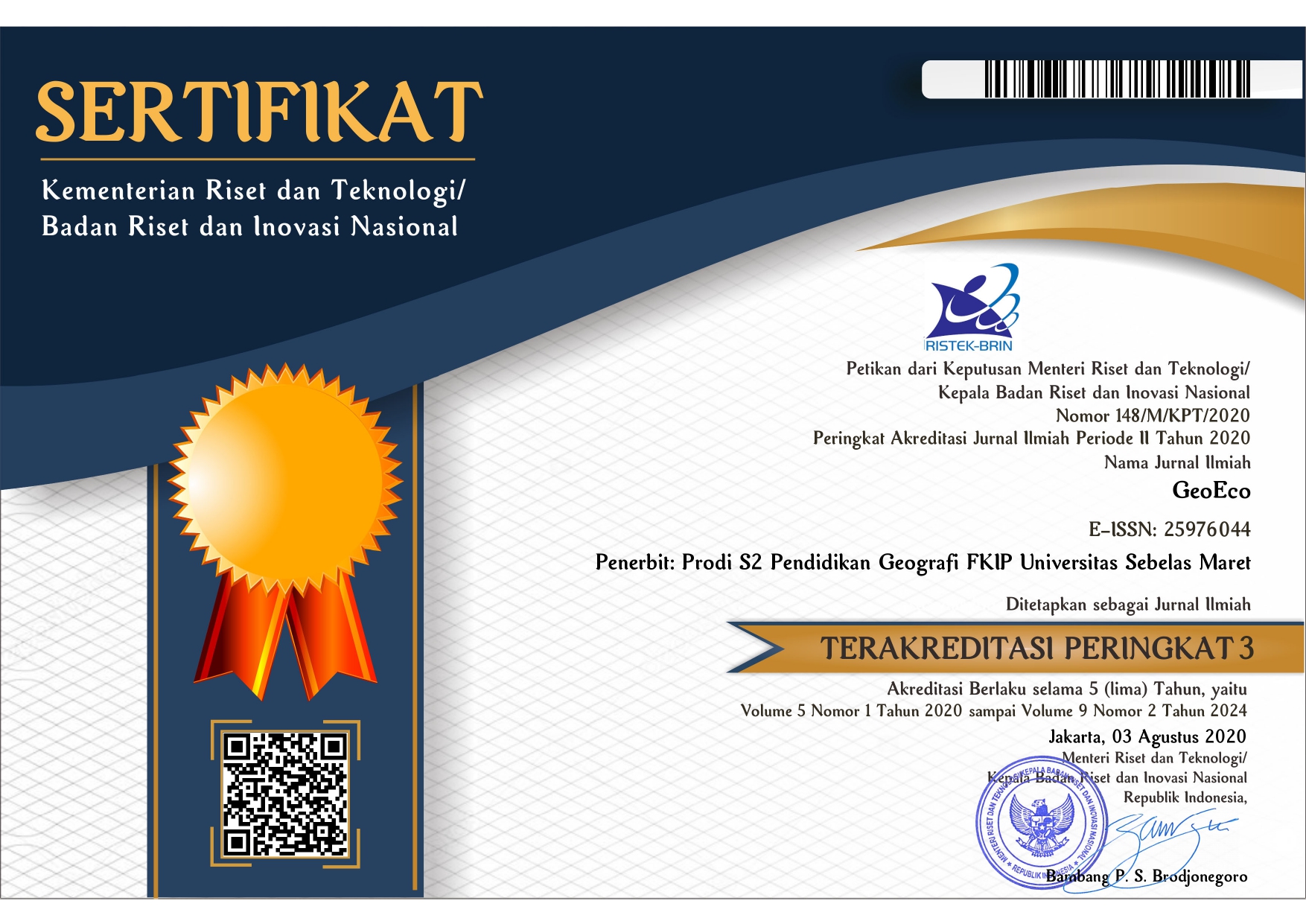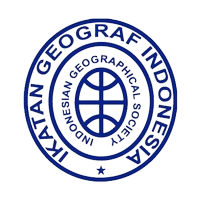THE ROLE OF YOUTH IN THE DEVELOPMENT OF SRIWIJAYA VILLAGE IN KUALA SIMPANG DISTRICT, ACEH TAMIANG DISTRICT, ACEH PROVINCE
Abstract
Keywords
Full Text:
PDFReferences
Abe, Alexander. (2005). Participatory Regional Planning. Yogyakarta: Pustaka Jogja Mandiri.
Adi, Isbandi Rukminto. (2007). Community Intervention in Community Development as an Effort to Empower Society, Jakarta: PT Rajagrafindo Persada.
Adisasmita, Raharjo. (2006). Rural and Urban Development. Graha ilmu. Yogyakarta.
Ahidin, U., Abidin, AZ, Halomoan, YK, Permatasari, RJ, & Sunarsi, D. (2020). Basic Training of Youth Organization Millennial Leadership in Pamulang Barat Village. BAKTIMAS: Journal of Community Service, 2(1), 72–76. https://doi.org/10.32672/btm.v2i1.2107
Aprilian, Sandy Dwi. (2015). Youth Participation in Village Development Planning Deliberation (MUSRENBANG Desa) in Sidorejo Village, Rowokangkung District, Lumajang Regency in 2015. Thesis. State Administration Study Program, Department of Administration, Faculty of Social and Political Sciences. University of Jember.
Aryaningsih, N.N., Arsana, M.M., Irianto, I.K., & Meirejeki, N. (2018). Constructing of Business Competency Models and Entrepreneurial Spirit based on Tourism Support Services Community Participation in Creative Industries, 469–473. https://doi.org/10.2991/icss-18.2018.98
Chandra, Gregorius, et al. (2011). Service, Quality & Satisfaction, 3rd Edition. Yogyakarta: Andi Offset.
Ciolac, R., Csosz, I., Petroman, C., Petroman, I., Marin, D., Dincu, A.M., Rujescu, C., & Stanciu, S. (2013). Public-private partnerships on rural tourism field in Europe an innovation for rural development-achievements and proposals. Scientific Papers Animal Science and Biotechnologies, 46(2), 387-392.
Conyers, Waterson, (1994), Social Planning in the Third World: An Introduction, Gadjah Mada University Press, Yogyakarta.
Egbali, N., Bakhsh, A., Nosrat, E., & Alipour, S. Khalil S. (2011). Effects of positive and negative rural tourism (case study: Rural Semnan Province). Journal of Geography and Regional Planning, 4(2), 63–76. https://doi.org/10.5897/JGRP.9000046
Frank, F., Smith, A., & King, K. (2000). The partnership handbook. Human Resources Development Canada Ottawa.
Garcia, A.S., & Wanner, T. (2017). Gender inequality and food security: Lessons from the gender-responsive work of the International Food Policy Research Institute and the Bill and Melinda Gates Foundation. Food Security, 9(5), 1091–1103. https://doi.org/10.1007/s12571-017-0718-7
Government Regulation Number 59 of 2013 Concerning Youth Leadership Development.
Han, H., Eom, T., Al-Ansi, A., Ryu, H.B., & Kim, W. (2019). Community-Based Tourism as a Sustainable Direction in Destination Development: An Empirical Examination of Visitor Behaviors. Sustainability, 11(10), 2864. https://doi.org/10.3390/su11102864
Helmi, Aditya. (2004). Analysis of the Influence of Brand, Strategic Orientation, and Innovation on Competitive Advantage (Study on Tanggulangin SMEs in Sidoarjo City). Indonesian Journal of Marketing Science. Vol.3(3). Master of Management Program, Diponegoro University.
Horton, P. B. (1999). Sociology. Jakarta: Erlangga.
Koentjaraningrat. (2015). Introduction to Anthropology. Jakarta: Rineka Cipta.
Kurniasari, D., Suyahmo, S., & Lestari, P. (2016). Peran Organisasi Karang Taruna dalam Mengembangkan Kreativitas Generasi Muda di Desa Ngembalrejo (The Role of the Youth Groups in Developing Youth Creativity in Ngunggungrejo Village). Unnes Civic Education Journal, 2(2). https://journal.unnes.ac.id/sju/index.php/ucej/article/view/2186
Liu, J., Jin, X., Xu, W., Fan, Y., Ren, J., Zhang, X., & Zhou, Y. (2019). Spatial coupling differentiation and development zoning trade-off of land space utilization efficiency in eastern China. Land Use Policy, 85, 310–327. https://doi.org/10.1016/j.landusepol.2019.03.034
Mtapuri, O., & Giampiccoli, A. (2016). Towards a comprehensive model of community-based tourism development. South African Geographical Journal, 98(1), 154–168. https://doi.org/10.1080/03736245.2014.977813
Nugraha, A.Y. Valdiani, D. Tosida, T.E. 2020. The Improvement of Tourist-Village Promotion Through the Optimalization of Information and Communication Technology for Rural-Youth. International Journal of Business, Ecomonics and Social Development, Vol. 1, No. 2, pp. 90-98, 2020. e-ISSN 2722-1156. p-ISSN 27722-1164. Available online at https://journal.rescollacomm.com/index.php/ijbesd/index
Siagian, Sondang P. (1989). Leadership Theory and Practice. Jakarta: Rineka.
Soekanto, Soerjono. (2002). Sociology An Introduction. Jakarta: PT Raja Grafindo Persada.
Solekhan, Moch. (2014). Implementation of Village Government. Malang: Setara Press.
Sumaryati, A. Hernawati, I.R. (2021). Organizational Strengthening Towards Achievement Karang Taruna. VOL 4, No.2 July 2021. ISSN: 2656-3037. http: //www.journals.segce. com / index.php / IJSEGCE. DOI: https://doi.org/10.1234/ijsegce.v4i2.176
Sunoto, I., & Nulhakim, AL (2017). Measuring Youth Participation Level in Youth Organization Program Using Mamdani's Fuzzy Infrence System Approach. Symmetrical : Journal of Mechanical Engineering, Electrical and Computer Science, 8(2), 711. https://doi.org/10.24176/simet.v8i2.1585
Surjono, Agus & Nugroho, Trilaksono (2008), Paradigm, Model, Development Approach, and Community Empowerment in the Era of Regional Autonomy, Bayu Publishing, Malang.
Taufiq, Rahmat, 2013. Management Information System Basic Concept, Analysis and Development Method, GrahaIlmu, Yogyakarta.
Tjokroamidjojo, Bintoro.(2006). Introduction to Development Administration. Jakarta: LP3ES.
Untari, S. (2014). Kemitraan Pemerintah-Swasta di Bidang Pendidikan dalam Upaya Peningkatan Kualitas Pendidikan di Kota Malang (Kajian pada SMAN 10 Malang-Sampoerna Foundation). [Dissertations] (Public-Private Partnerships in Education in Efforts to Improve the Quality of Education in Malang City (Study at SMAN 10 Malang-Sampoerna Foundation), Brawijaya University.
Untari, S., & Suharto, Y. (2020). The Development Of Youth And Woman Entrepreneurship Program In Village Tourism Through Partnership. GeoJournal of Tourism and Geosites, 33(4spl), 1538–1544. https://doi.org/10.30892/gtg.334spl14-605
Vinogradov, D., & Shadrina, E. (2018). Public-Private Partnerships as Collaborative Projects: Testing the Theory on Cases from EU and Russia. International Journal of Public Administration, 41(5–6), 446–459. https://doi.org/10.1080/01900692.2018.1426012
Wadu, LB, Ladamay, I., & Jama, SR (2019). Involvement of Citizens in Sustainable Development Through Youth Organizations. Journal of Citizenship Education, 9(2), 1. https://doi.org/10.20527/kewarganegaraan.v9i2.7546
Wantoro, M. (2018). Woke! “Wonorejo Berkebangsaan” Rintisan Desa Bhineka Tunggal Ika sebagai Wahana Edukasi Nilai—Nilai Pancasila Melalui Pendekatan PRA (Participatory Rural Appraisal) dalam Rangka Pencapaian Program Nawacita [Woke! " Wonorejo Berkebangsaan " Pioneered the Village of Bhineka Tunggal Ika as a Forum for Education of Pancasila Values through the PRA (Participatory Rural Appraisal)]. Approach to Achieve the Nawacita Program, Laporan PKM-M.
Refbacks
- There are currently no refbacks.












.png)

